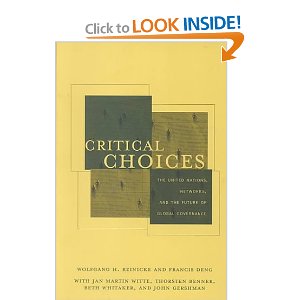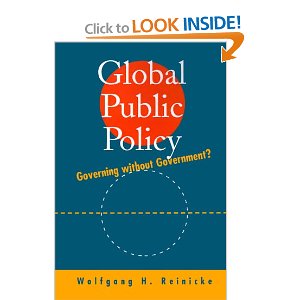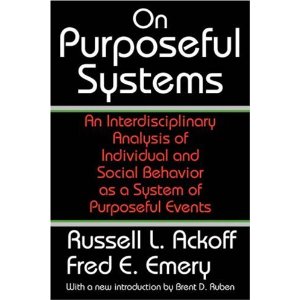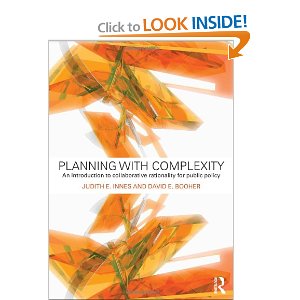
Wolfgang H. Reinicke (Editor), Francis Deng (Editor), Jan Martin Witte (Editor), Thorsten Benner (Editor), Beth Whitaker (Editor), John Gershman (Editor)
5.0 out of 5 stars Global Hybrid Network Governance Primer for UN+, July 21, 2011
By Robert D. Steele (Oakton, VA United States) – See all my reviews
Last week I reviewed the first book on this topic by the first author (Wolfgang Reinicke), Global Public Policy: Governing Without Government. I overlooked that book published in 1998, and this book in 2000, for lack of consciousness. Evidently others did as well given the lack of reviews. What makes both these books even more important now is the appointment of the primary author, Wolfgang Reinicke, to the position of inaugural dean of the school of public policy at the Central European University founded and richly endowed by George Soros. To understand how much George Soros has broken away from the government-financial crime axis, his essay free online and also the first fifty-seven pages of The Philanthropy of George Soros: Building Open Societies is essential reading.
I read this book at three levels: for content on its merits; for insight into the specific individuals and agencies behind the book; and for insight into where George Soros might be hoping that Dean Reinicke will go with network governance, what some of us call Panarchy, which is rooted in what we call M4IS2 (Multinational, Multiagency, Multidisciplinary, Multidomain Information-Sharing and Sense-Making). In other words, secrecy is out, transparent true cost information about everything is in–transparency breeds truth, truth breeds trust, and this is how we achieve a non-zero prosperous world at peace that works for all, not just the top 1%.
On page 91 one finds a quote better suited to the front matter, from Kofi Annan:
QUOTE (91): The United Nations once dealt only with governments. By now we know that peace and prosperity cannot be achieved without partnerships involving governments, international organizations, the business community, and civil society.








